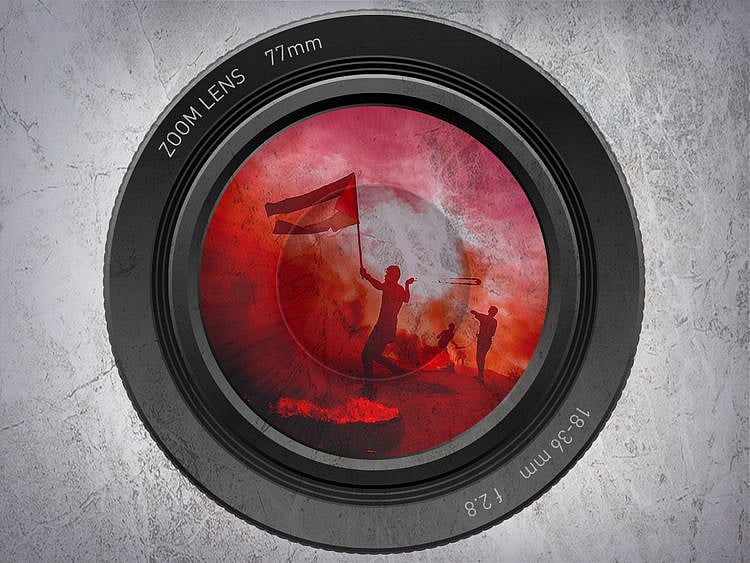Recently, a long year after it was hit by a brutal wave of coronavirus cases, followed by widespread closures of its museums, theatres, concert halls and other cultural centers, New York returned to its old high-spirited, brash self as the metropolis sans pareil in America.
Now with the coast clear, we get to rediscover why there’s something in the air of the city that never sleeps, as the French existentialist philosopher Simone de Bauvoir once put it, “that makes sleep useless”.
On a Metroliner, New York is but a short train ride from Washington, my hometown for the last 46 years. And when I got there last week, my destination was a granite building on the Upper East Side of Manhattan that housed the New-York Historical Society, which for decades had presented well-researched exhibitions on a variety of topics and periods in American history.
And my target there was one of these exhibitions, running through October 3, called “Cover Story: Catherine Graham CEO”, Graham having been the Washington Post’s president and publisher (d. 2001), who, film buffs will recall, was immortalised by Merrill Streep in the 2017 Oscar-winning movie “The Post”, just as the paper itself had earlier been immortalised by Robert Redford and Dustin Hoffman in the iconic, equally lauded 1976 movie “All the President’s Men”.
A beacon of light
Let’s face it, in its heyday, the Washington Post under the stewardship of Graham could take credit for many a journalistic feat, but two of these feats stand out: the publication of the leaked Pentagon Papers in June 1971, that effectively ended a disastrous war in Vietnam, and the revelations about the Watergate scandal — revelations made possible by foot-in-the-door digging by the then two young reporters, Bob Woodward and Carl Bernstein — that ended the career of President Nixon in August 1974.
The Washington Post is dear to Washingtonians. Heck, I’ve had breakfast with it every morning for well over four decades and in its absence, while away on a lecture tour, I experienced feelings akin to withdrawal symptoms. (Disclosure: over the years, I’ve contributed several op-ed pieces for the paper and had known its editorial page editor, the late Stephen Rosenfeld.)
Fine, with that said, let’s move on.
Were it not for the accident of birth, rendering me a Palestinian, who had made his original leap to a maturing consciousness in the old country, I would’ve reacted to the exhibition the same way other Americans would’ve done — with awe at and, yes, gratitude for the role that free, independent media plays in our lives. But my reaction in this case was visceral, namely, dismay, perhaps even anger at how the idiom that the American media had consistently used to report the news from Palestine was of the kind that reduced to fragment the humanity, the very truth of the Palestinian people’s struggle for freedom.
No other news topic has generated more heated complaints of partisan reporting, biased against Palestinians, than that of the Palestine conflict. And the complaints, not altogether unfounded, are levelled at the mainstream media.
Consider this. In this media, Jewish settlers live in “neighbourhoods” or “communities” established in the West Bank, which is surrounded by a “security fence” to ward off the evil of “terrorists”. Hebron, 99 per cent of whose population are Palestinian, is a “divided” city and East Jerusalem, since the 7th century an Arab and Muslim spiritual centre, today inhabited by tens of thousands of Palestinians, is “undivided” And this media has forever been, to put it charitably, coy about using the “O” word, whereas by contrast the European media freely speaks, say as the The Guardian and Le Monde do, of “the millions of Palestinians living under occupation”.
Words matter
A news reporter’s choice of words, not to mention his or her semantic fashion of expressing them, can affect, if subliminally, the very construct of our view of the world. Language, after all, is not a mere currency of rational. It stands in a vital, reciprocal relationship to consciousness and felt reality. When a reporter tells readers, for example, that an Israeli official “affirmed” while his Palestinian counterpart “claimed”, or that a Palestinian “died” in an Israeli air strike whereas an Israeli was “killed” by a Palestinian rocket strike, or for that matter when a generic term like “Israeli-Arab”, instead of “Israeli-Palestinian”, is used to refer to Palestinian citizens of Israel — thus divorcing them their ethnic identity and their roots in historic Palestine — that reporter is editorialising, not reporting.
It’s not right. It’s not right that the story of the injured party in this dispute should be maligned, whether by design or not. Nor is it right that Americans should remain exposed to a one-sided narrative about that conflict, unschooled about its moral imperatives and seminal truths.
As the folksy proverb from the old country has it, “Until the lion tells his side of the story, the tale of the hunt will always glorify the hunter”.
Surely, we don’t expect the countenance of such glorification by anyone associated with the journalistic enterprise. Do we now?
— Fawaz Turki is a journalist, academic and author based in Washington. He is the author of The Disinherited: Journal of a Palestinian Exile
Sign up for the Daily Briefing
Get the latest news and updates straight to your inbox
Network Links
GN StoreDownload our app
© Al Nisr Publishing LLC 2026. All rights reserved.
